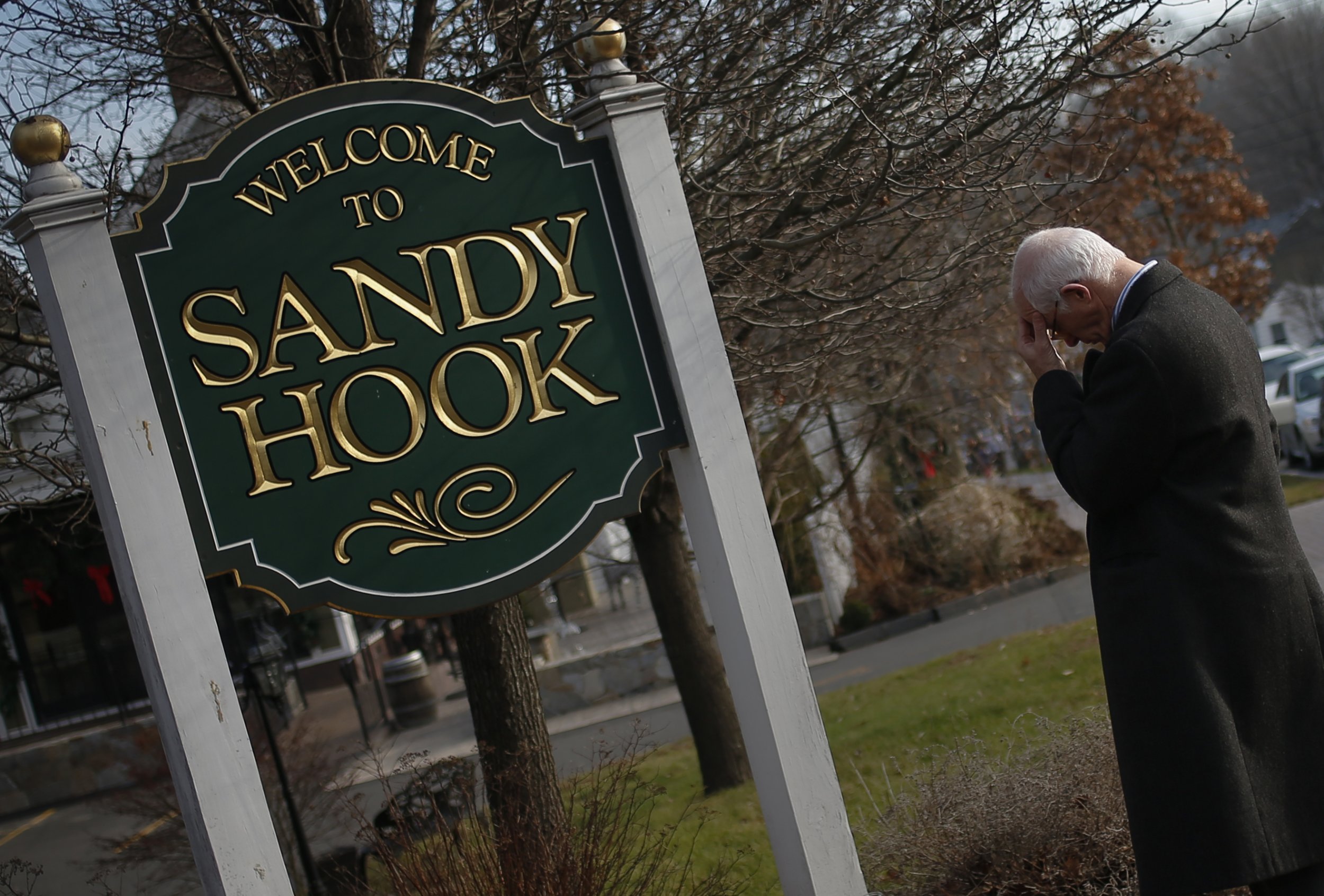
In a major loss for gun-violence victims and their families, a judge in Connecticut on Friday afternoon dismissed a high-profile lawsuit against the maker of the rifle used in the December 2012 Sandy Hook Elementary School massacre, ruling that by law gun companies are shielded from legal action over firearms used in crimes.
At issue is the 2005 Protection of Lawful Commerce in Arms Act (PLCAA), which has prevented most liability suits brought by gun-violence victims and their families from moving to trial. In her 54-page decision, Fairfield District Superior Court Judge Barbara Bellis referred to the law: "The present case seeks damages for harms, including the deaths of the plaintiffs' decedents, that were caused solely by the criminal misuse of a weapon by Adam Lanza. Accordingly, this action falls squarely within the broad immunity provided by PLCAA," she says.
A survivor and nine families affected by the fatal shooting filed the lawsuit against the maker, distributor and seller of the Bushmaster AR-15, which officials said the gunman used to kill 26 educators and children—including 20 first-graders—in less than five minutes on December 14, 2012, at the school in Newtown, Connecticut.
The lawyers representing the companies had asked Bellis to dismiss the lawsuit, pointing to the shield provided by PLCAA.
Meanwhile, the plaintiffs believed they had a case because of a "negligent entrustment" clause included in PLCAA. The plaintiffs' lead attorney, Josh Koskoff, said the firearm manufacturer was negligent because it made available to the general public a weapon that was "designed to kill" and "designed for mass murder." Bellis ultimately disagreed. The plaintiffs also argued the rifle shouldn't have been entrusted to the public because it was a military-style assault weapon that is unsuited for civilian use. They said the companies knew—or should have known—about the high risks of the rifle, including the ability for a shooter to use it to inflict maximum casualties and serious injury.
Koskoff said the families will appeal the decision immediately. "While the families are obviously disappointed with the judge's decision, this is not the end of the fight," he said in a statement.
The first hearing in the case took place in February. Bellis refused to dismiss the suit two months later, and the trial originally was planned for April 2018.
The case named Remington Arms Co., the manufacturer of the weapon; Camfour Inc., a distributor of firearms; and Riverview Gun Sales, the now-defunct dealer in East Windsor, Connecticut, that sold the rifle to the shooter's mother in 2010. Gunman Adam Lanza obtained the rifle from the home he shared with his mother, Nancy, whom he killed before the December rampage.
The families initially filed their lawsuit in December 2014, two years after the massacre. The case was delayed because the gun companies' lawyers tried to transfer it to federal court, where it was less likely to move forward than at the state level. In October 2015, it was returned from federal court to the state. Having the case heard in a Connecticut courtroom was viewed by some as an advantage for the plaintiffs because of its proximity to the shooting site.
The Sandy Hook families were hoping to avoid a similar fate to that of Lonnie and Sandy Phillips, whose daughter, Jessica Ghawi, was killed in the July 2012 movie theater shooting in Aurora, Colorado. In 2014, the Phillips sued the online businesses that supplied the gunman with the ammunition, body armor, tear gas and other related equipment used in the assault. The judge ultimately dismissed their lawsuit because of the gun industry's protections under PLCAA, as well as a Colorado immunity law.
Whether gun companies should be held liable after mass shootings was a controversial issue in the Democratic primary election. Hillary Clinton opposed PLCAA when she was in the Senate, while Bernie Sanders voted for it when he was in the House. Sanders defended his record, saying he is from a rural state and wants to protect mom-and-pop gun shops from legal responsibility in shooting cases.
Uncommon Knowledge
Newsweek is committed to challenging conventional wisdom and finding connections in the search for common ground.
Newsweek is committed to challenging conventional wisdom and finding connections in the search for common ground.
About the writer
Michele Gorman is a Newsweek political reporter, with a focus on gun policy. She previously worked at msnbc.com, where she ... Read more





